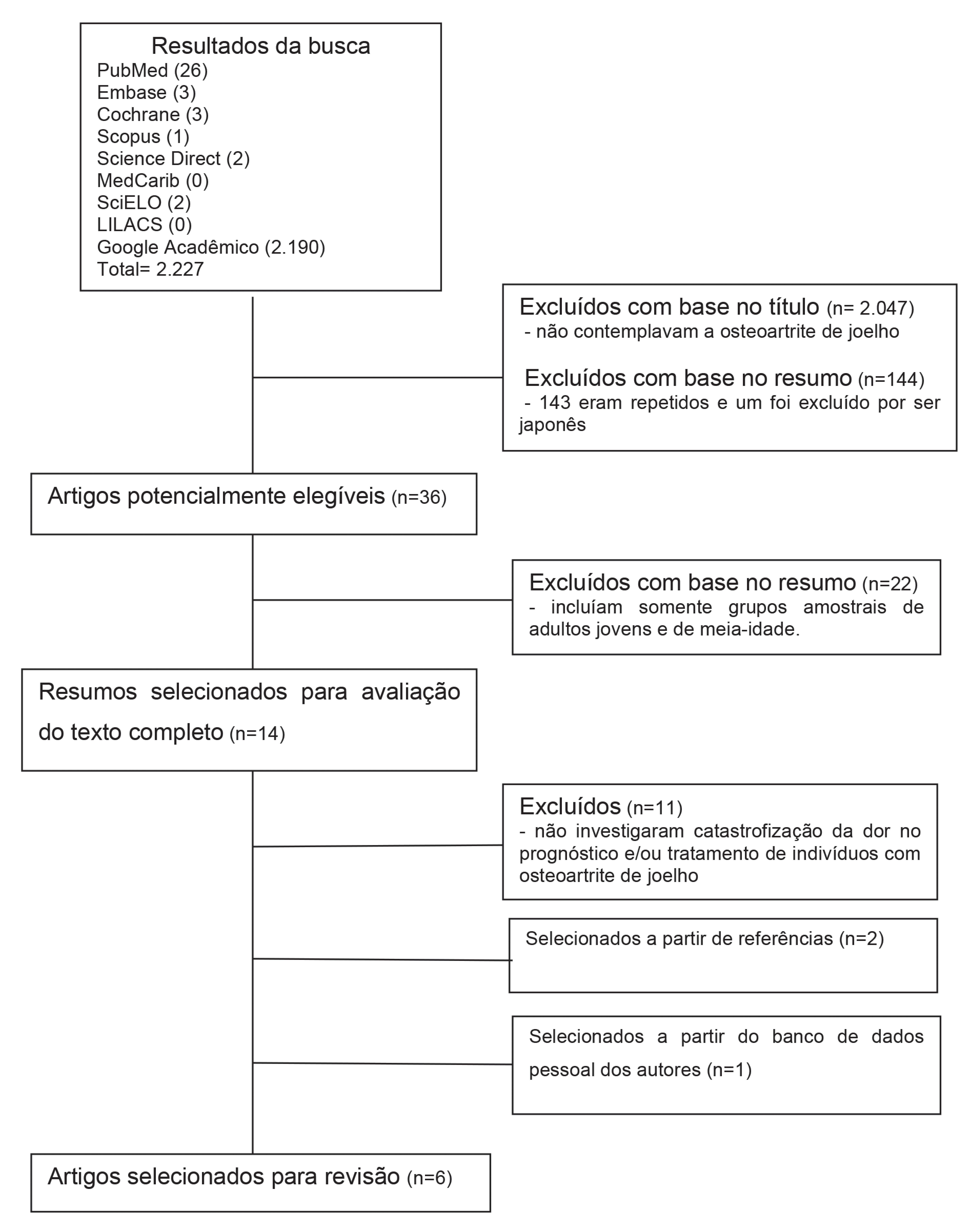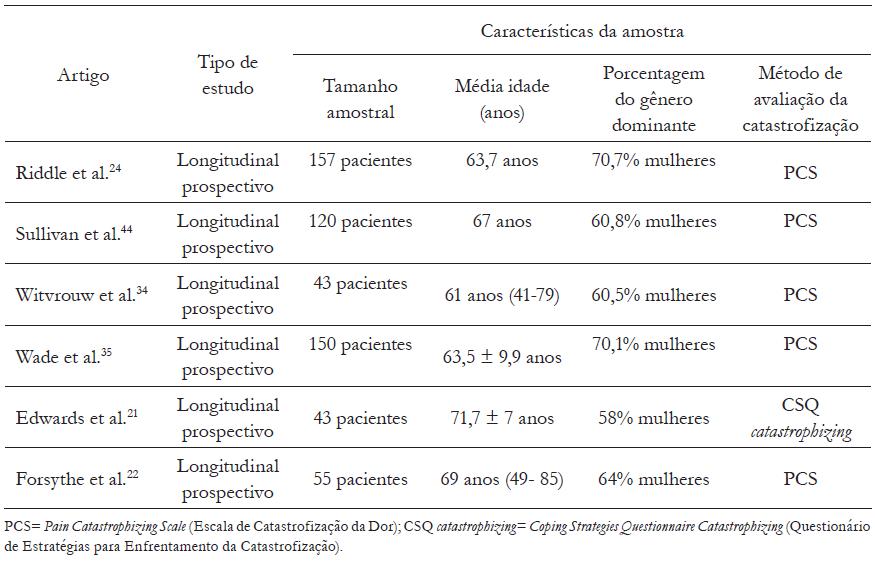Total knee arthroplasty performed on patients with severe osteoarthritis can lead to improvement in pain, physical function and quality of life. However, some individuals have negative results after this procedure. Pain catastrophizing has been identified as the most important psychological predictor for worse outcomes after surgery. This study aimed to review the literature about the influence of pain catastrophizing on prognosis and treatment of elderly subjects with knee osteoarthritis. Literature search was performed in Medline via PubMed, Embase, Cochrane, Scopus, Science Direct, MedCarib, SciELO, LILACS and Google until June 2012. The search yielded a total of 2,227 articles, and after exclusion by title, abstract and full text, six studies were included. All items shown as a common feature of treatment as TKA surgery. Although the analysis of other variables such as depression, anxiety, pain severity and disability, catastrophizing was considered the only variable that significantly contributes to the results of the recovery after arthroplasty, contributing to longer hospital stays, more pain and deterioration in functionality. It is necessary to put basic measures into practice to identify individuals who are more catastrophizers and thus psychosocial interventions may be needed to promote a more positive recovery in individuals presenting a profile of psychosocial risk, reducing the length of hospitalization.
Catastrophization; Pain; Osteoarthritis, Knee; Elderly



